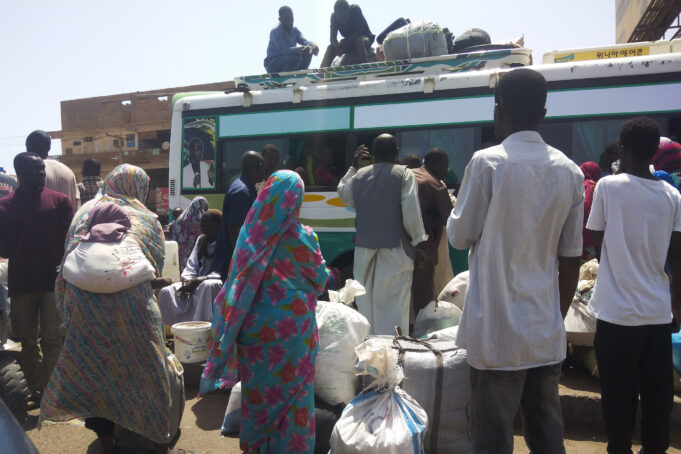Taking a page from the Nation of Islam’s Eternal Leader, the Honorable Elijah Muhammad’s often quoted, “Our unity is more powerful than an atomic or hydrogen bomb,” Kenya’s PLO Lumumba said recently, “We Africans must stop operating in silos.”
“Rwanda, (where he was speaking) alone will not confront them (Europe and the U.S.). Burundi alone will not confront them, but if we go through the regional bodies (like IGAD and ECOWAS), and ultimately the African Union (AU), we may indeed succeed in putting away this bulwark,” he said, referring to the obstacles impeding Africa’s growth as a free and independent and economically solvent continent. EGAD is the Intergovernmental Authority on Development in Eastern Africa and ECOWAS is the Economic Community of West African States.

As one of the founding members of the Organization of African Unity (OAU), now the AU, Kwame Nkrumah once asked, “How can some of our smaller States hope to bargain successfully with powerful foreign combines (like the World Bank and the International Monetary Fund) some of which control financial empires worth more than the State’s total revenue?”
So why are the U.S. and Saudi Arabia negotiating—ineffectively, I might add—peace in the northeast African country of Sudan? Why are the regional organizations like IGAD, which consist of Djibouti, Ethiopia, Kenya, Somalia, Sudan and Uganda, and ECOWAS, which represents 16 nation-states, and the continental body representing 54 African countries called the African Union—all but silent?
Sudan’s capital city is literally being destroyed by two warring factions with the civilian population caught in the middle. And now roving gangs are taking advantage of the fact that there is no security, no police force, no protection for the civilian population or the neighborhoods where they live. As in occupied Palestine, the Western powers are more concerned about investing billions of dollars in the war in Ukraine, “to the last Ukrainian,” as one report noted, but have turned a blind eye to the destruction in Sudan and the current displacement and migration of millions of new refugees to Chad, Egypt, Ethiopia and South Sudan.
Sudan’s capital city, Khartoum, where this writer once lived, could be likened to the Israeli illegal demolition of Palestinian family homes. Places that once were, now appear to have never been. As Philadelphia-based 900AM-WURD Talk Radio host Nick Taliaferro said to me: “I can only imagine how torn your heart is by seeing a land that you lived and loved, being ruined by needless bloodshed.”
“Nothing has been spared from the looting, including hospitals, humanitarian organizations, and the abandoned houses of more than 500,000 people who fled the capital for neighboring towns, or other countries,” reported the financial news website, Barron.
According to media accounts, eyewitnesses in Khartoum North reported that wheat silos at Sayga, Sudan’s largest producer of flour, have been emptied out—a potential disaster for a country where the UN predicts 19 million people in a country of 47 million, could be food insecure within roughly six months.
The U.S. and Saudi response: More negotiations for temporary ceasefires for humanitarian aid between Sudan’s de facto leader, and head of Sudan’s Armed Forces, General Abdel Fattah al-Burhan, and the sacked deputy-turned rival Mohamed Hamdan Daglo, also known as Hemedti, the head of the paramilitary Rapid Support Force (RSF).
The negotiated ceasefires are continually violated, with increasing death counts being the result. Why isn’t the U.S. utilizing its permanent United Nations Security Council veto-powered position to push through Chapter VII: “Actions with Respect to Threats to the Peace, Breaches of the Peace, and Acts of Aggression (Articles 39-51)?”
Article 39 reads: “The Security Council shall determine the existence of any threat to the peace, breach of the peace, or act of aggression and shall make recommendations, or decide what measures shall be taken in accordance with Articles 41 and 42, to maintain or restore international peace and security.”
This isn’t even on the table. The language being utilized is from Ernst Jan Hogendoom and John Predergast who are two—by Western standards—leading “experts” on Sudan. Their debate made good points, but it was violin playing while Sudan burns. No de-militarizing of both warring factions and securing the region is being discussed.
Several reports suggested that General Burhan is mobilizing for a new offensive to gain the upper hand when it comes to negotiations. What is not being taken into consideration is the collateral damage—the increasing body count and the destruction that comes with continued fighting.
Before the 2011 referendum, Sudan was Africa’s largest country. It’s now its third largest. It shares borders with seven countries: Libya, Egypt, Chad, the Central African Republic, South Sudan, Ethiopia and Eritrea.
Sudan’s destabilization will destabilize the entire region. And if the current growing refugee crises are any indication, where there are more refugees and Internally Displaced Persons (IDPs) than there are resources to provide for them and if Africa doesn’t use its regional and continent-wide organizations to address this growing apocalypse, the consequences could be cataclysmic. Follow @JehronMuhammad on Twitter













